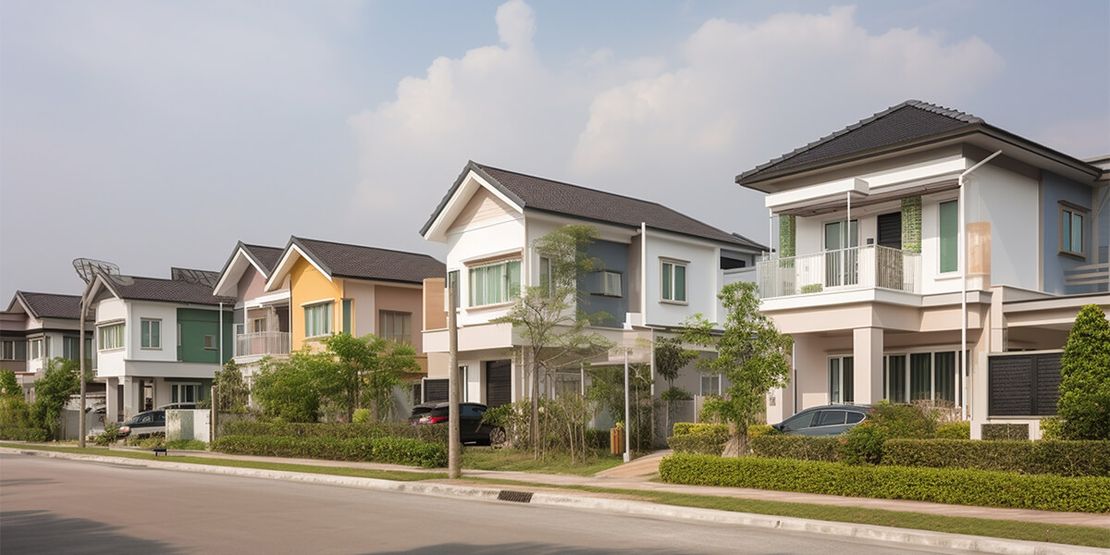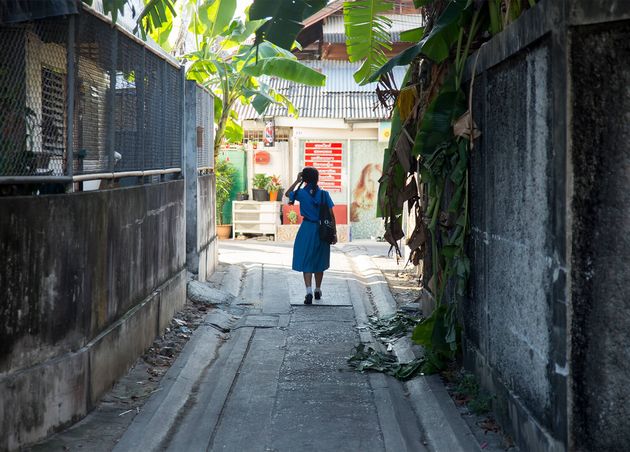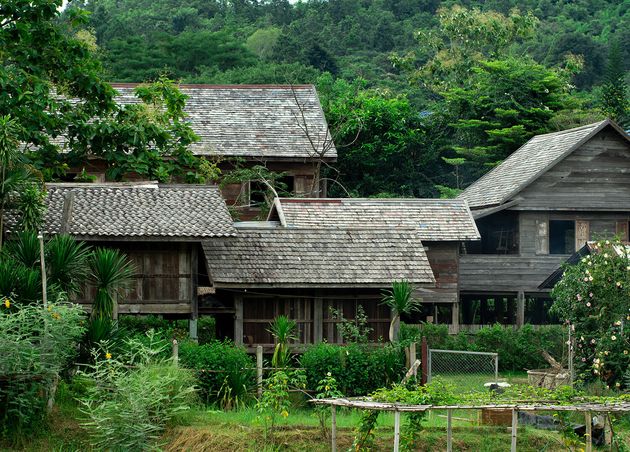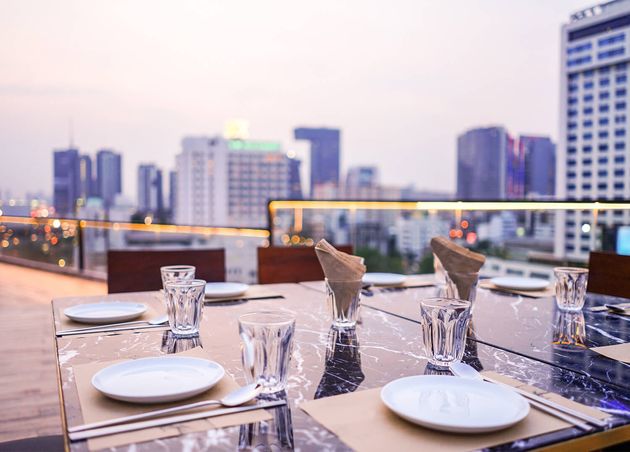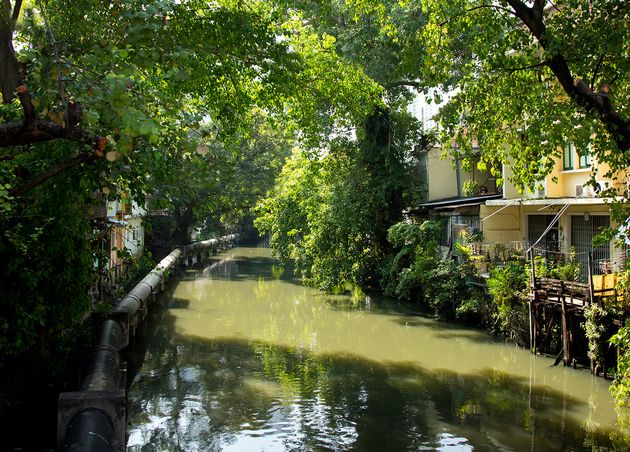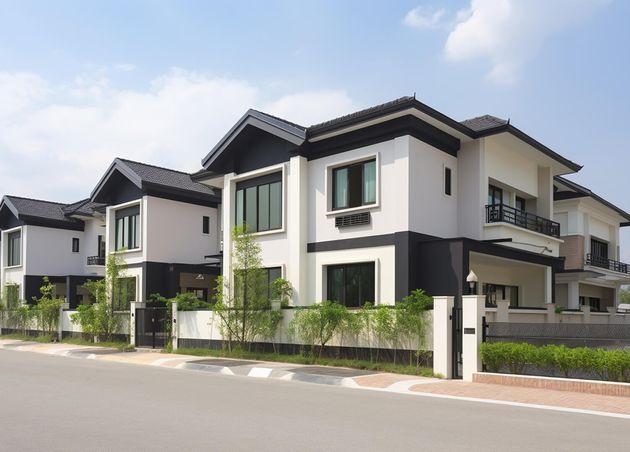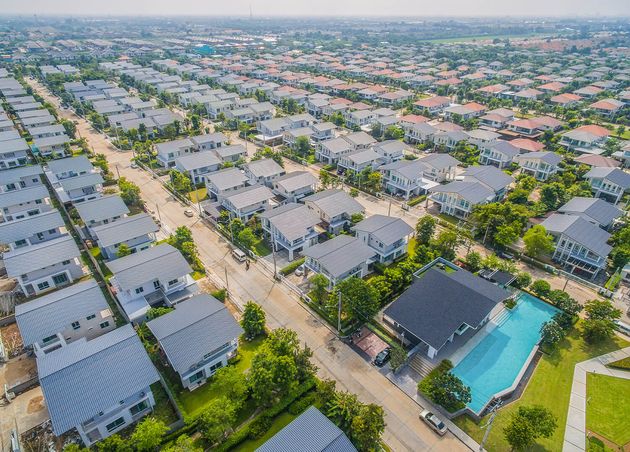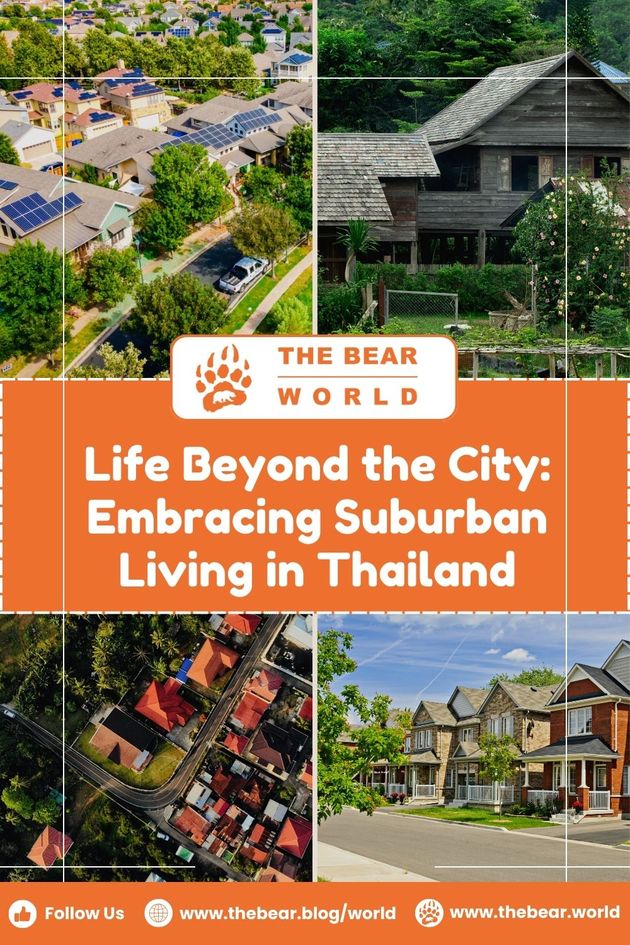Life Beyond the City: Embracing Suburban Living in Thailand
Today, as you plan to move to Thailand, we're delving further into the appeal of suburban living in Thailand compared to bustling city life. We'll explore why people opt for the tranquility of the suburbs over the urban hustle.
For those contemplating the switch, it's a mix of excitement and challenge as they weigh factors like convenience, space, and social opportunities against the allure of city living. Whether out of necessity or a quest for a different lifestyle, we'll discuss suburban life's undeniable perks and potential drawbacks. But let's not overlook the dynamic urban scene, teeming with culture, diversity, and endless possibilities.
So, buckle up as we weigh the pros and cons to help you decide what aligns best with your dreams and goals. Let's dive into suburban living in Thailand, where opportunities abound, and the horizon awaits.
🚀 Expat Fact!
Buyers are moving away from Central Bangkok to leverage suburban spaces by buying homes rather than condominium units.
Quick Reference on Thailand Suburban Living
- Benefits of Moving to the Suburbs
- Lower Living Costs
- Safer, Quieter Environment
- Closer Proximity to Nature and Green Spaces
- Downsides of moving to the suburbs
- Transportation Problems
- Lack of Amenities
- Social Insulation and Lack of Diversity
- Tips for Suburban Property Buyers
- Know Your Priorities
- Research Suburban Areas
Benefits of Thailand Suburban Living
Your reason to move to the suburbs might be to live a humble and less competitive life or you are being forced to move for particular reasons. The following are some common benefits of moving from urban areas to the suburbs of Thailand.
#1 Lower Living Costs
One of the most significant benefits of moving from the city center to the suburbs is the lower living costs. Properties in the suburbs tend to be more budget-friendly due to their distance from important infrastructures and amenities. This makes accommodation costs more affordable compared to the luxury homes in the urban centers.
Also, suburban life frequently comes with reduced property taxes and this lightens the financial burden for homeowners. Also, the distance of the suburbs from the different amenities and transportation options results in reduced daily expenses. This makes it a cost-effective and attractive option for those seeking to save funds while still enjoying a relatively comfortable and luxurious life.
#2 Safer, Quieter Environment
Moving from the city to the suburbs offers the advantage of a safer and quieter terrain. Unlike the busy and noisy megacity roads with constant noise pollution from commuting vehicles or the sky train’s mechanical droning, the suburbs offer a peaceful environment that allows residents to enjoy unperturbed nights of peaceful sleep. With reduced noise from the traffic and distant roars from engines excluded, morning hours become more pleasurable. This creates an opportunity for a little extra sleep before the start of the day.
Also, lower crime rates in suburban communities contribute to a sense of security and peace of mind for residents, making the cities an ideal choice for those who seek a much more tranquil and secure living terrain.
#3 Closer Proximity to Nature and Green Spaces
One of the enticing benefits of moving from the city to the suburbs is the propinquity to nature and green spaces. In suburban areas, the inhabitants can avoid the polluted environments of city life and enjoy the quietness of extensive green areas, lush gardens, and parks. It becomes easier to enjoy outdoor activities such as bike riding, walking for leisure, and picnics with family and friends.
The abundance of trees, plants, and gardens provides a much stimulating retreat from the usual hustle and bustle of city life, thus promoting a healthier and more active life. The suburbs offer a peaceful environment for residents to reconnect with nature and savor its numerous benefits. This includes unwinding amidst the beauty of nature and engaging in colorful outdoor activities.
🚀 Expat Trivia
Indoor containers in the homes in the suburbs were handled better than in the households in the rural areas as they had lids.
Downsides of Thailand Suburban Living
Despite the increased comfort and lower living cost in suburban life, moving from the city to the suburban has some downsides to keep in mind. The following are some crucial downsides to take note of when moving to the suburbs.
#1 Transportation Limitation
One downside of living in the suburbs is the limited transportation options, which can be more manageable for individuals with private cars but may be challenging for persons who don’t. While having a car enables easy movement within the suburban areas, people who rely on public transportation may find themselves with limited options.
Without a personal vehicle, residents might need to walk longer distances to find public transportation or depend on shuttle buses or van services to reach their destination. Daily routines particularly for work or school can be affected by this inconvenience, potentially leading to less flexibility and longer travel times as compared to the convenience of the transportation system in the urban areas.
#2 Lack of Amenities
Another downside of moving to the suburbs of Thailand is the lack of amenities. While suburbs offer a serene and peaceful terrain, they might not give the same convenience in terms of readily available services, entertainment options, and different restaurants and cafes. People who live in these areas may find themselves traveling further distances to go to shopping centers, cafes, cinemas, or recreational amenities that are abundant in the urban areas.
This limited access to amenities can occasionally make people feel isolated and it means fewer options for social relations. This makes it essential for individuals or families who are considering suburban living to precisely estimate their life preferences and prioritize their requirements as well.
#3 Social Isolation and Lack of Diversity
One significant downside of moving to the cities is the eventuality of social insulation. Unlike the close-knit neighborhoods and busy roads of the city, suburban communities may have larger lots and further spread-out buildings, leading to a smaller chance of interaction with neighbors.
This insulation can be particularly challenging for individuals or families who have strong connections with their former neighbors in the cities. Conforming to a new house and a less familiar neighborhood can be a daunting task, needing time and effort to establish new connections. Without the bustling megacity’s constant buzz, residents may need to intentionally seek out social conditioning, clubs, or community events to produce a sense of belonging and deal with the feeling of loneliness.
Another disadvantage of moving to the suburbs is the possible lack of diversity. The metropolitan areas are frequently known for their vibrant blend of societies, backgrounds, and traditions, fostering a sense of inclusivity and enriching social behaviors. Suburban communities may offer more similarities in lifestyles which could lead to a narrower perspective on life and limited exposure to different societal behaviors.
This lack of diversity can be especially concerning for individuals or families seeking a broader understanding of the world and embracing multilateral gests. To combat this, people migrating to the suburbs can laboriously engage in community events, share in cultural associations, and encourage inclusivity to foster a more different and enriching community.
Tips for Suburban Property Buyers
As you migrate to the suburbs, you might want to own a property there. The following advice will be helpful for prospective homeowners like you.
#1 Identify Your Preferences
Before deciding to buy a suburban property, it's pivotal to identify your preferences as a buyer. You need to consider your personal and family requirements, life preferences, and long-term goals.
Decide what aspects of suburban living are most important to you, whether it’s access to quality education, propinquity to parks and green spaces, a sense of community, or lower living costs. By understanding your preferences, you can concentrate your search for properties that suit your taste, and you will have a smooth and satisfying transition to life in the suburbs.
#2 Research Suburban Areas
When considering a move to the suburbs, property buyers need to conduct a thorough exploration of diverse suburbs. Each community may provide different amenities and propinquity to important services. You need to look out for ease of movement, availability of public transportation, nearness to educational facilities, businesses, recreational openings, and safety records.
Also, consider the history and future developmental plans of the area to predict its eventuality for growth and investment value. Gather comprehensive information on different suburban locales to empower you to have informed opinions, ensuring you find the perfect match that really suits your lifestyle and fulfills your prospects for a new home.
From City to Suburbs: Is It Worth It?
As we conclude in this article, one thing that remains clear is that your decision to live in the suburban areas is very personal and multifaceted. For some, the appeal of larger living spaces, tranquility, and a stronger sense of community may outweigh the distance from civic amenities.
Others might find the energy of the city, social life, and inclusion to be priceless. It's a delicate dilemma, where considerations of life, budget, and individual preferences intertwine.
Eventually, the question isn’t about worthiness but about choosing the perfect fit —the place where dreams can blossom and your heart can find fulfillment. So, as you embark on your trip to a new chapter, always keep your unique expectations a priority, and allow your heart to guide you to a place you can joyously call “home.” The adventure awaits and the future is yours to conquer!
Lifestyle Bear


